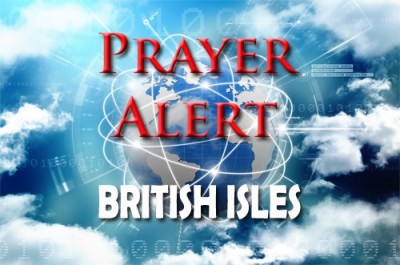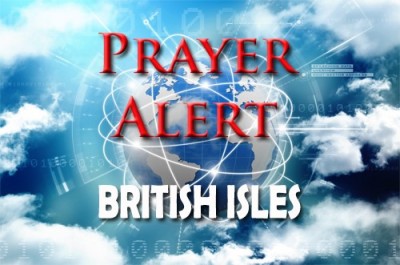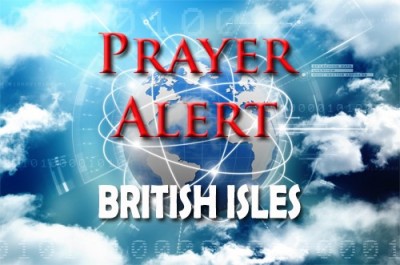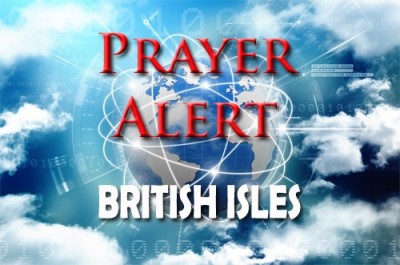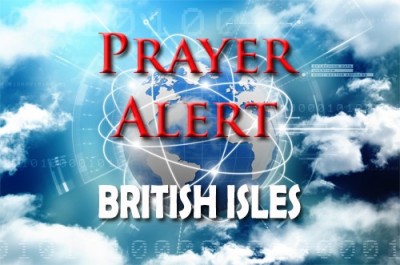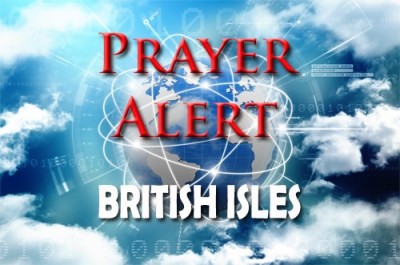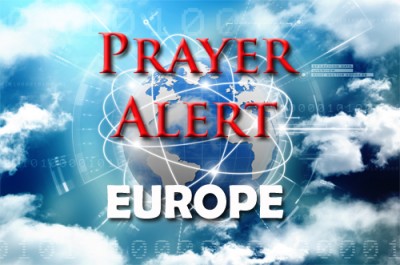Jesus is for real
07 Jan 2021Her atheist parents were surprised when three-year-old Akiane began describing dreams and visions from God. She spent her early years in rural Illinois. No money, no friends, no television or radio, no babysitters - a quiet simple life. She spoke of colourful dreams and visions about heaven, Jesus, and God’s amazing love. Her parents realiszed her focus on God was not inspired by anything in the isolated world they lived in. Akiane had supernatural encounters with the living God and expressed them through her gift of art. ‘Nobody told me who God was; I found Him myself. He’s been there for me through the years. I don’t belong to any denomination or religion. I belong to God.’ As Akiane has got older, some early dreams and visions have faded. ‘Although I have forgotten most of my early heavenly contacts, my recent visions continue in a special way’, she says. ‘I alone know how important Jesus is for me.’
Back to lockdown
07 Jan 2021Boris Johnson warned the coming weeks will be the hardest yet, in another national lockdown for England. Schools and universities must switch to online learning, and summer exams will not go ahead. Pray for anxious families facing isolation at home with lack of income or adequate technology to support their stay-at-home school children or effectively work from home. May God give them peace of mind and hope for the future. Some schools are open for vulnerable and key workers' children. Pray for those who are caring for these groups to have a full complement of staff to meet students’ needs, and be able to implement appropriate safety measures to prevent pandemic transmission. Pray for the children who will not now be taking their exams this summer. May the educators and assessors be anointed to give honest and fair grades. Pray also that this lockdown will prevent the NHS from being overwhelmed in the next few weeks.
Concerns over changed Covid vaccine timeline
07 Jan 2021A survey of 1,318 doctors by Everydoctor found medics who have had their first dose of a Covid vaccine, but their appointments for the second dose have been cancelled as the Government's new policy attempts to give as many people as possible some immunisation. Now the two doses are separated by twelve weeks, not three. Dr Julia Patterson, the lead for Everydoctor, said doctors fear that delaying the second dose which they need to obtain full immunity could lead to them becoming ill or infecting colleagues or patients. In the survey, 13% said that they had received one vaccine dose but their second appointment for immunisation had been cancelled. Another 517 (39%) said they had still not been told when they would have their first dose. ‘The Covid-19 crisis is escalating, and we urgently need to protect frontline workers. If healthcare workers are left unprotected, they are at risk themselves, and they may also pass coronavirus on to vulnerable patients’, said Dr Patterson.
Laptop-less pupils could overwhelm schools
07 Jan 2021There are concerns some schools in lockdown could be inundated with pupils without laptops after a change to the vulnerable pupil list. Pupils are learning remotely in England after schools shut to all but children of key workers and the vulnerable. But those without laptops or space to study are now eligible to attend school, under government guidance. National Association of Head Teachers general secretary Paul Whiteman said demand for key worker and vulnerable places in schools had risen substantially since the last school shutdown. ‘We have concern that the Government has not supplied enough laptops for all the children without them, and so has made lack of internet access a criterion of vulnerability - adding to the numbers still in school.’
Church in lockdown
07 Jan 2021England’s church leaders welcomed permission for communal worship under new lockdown. Pray that God will help congregations to take care, and for His shield of protection and wisdom to be around the vulnerable. Cardinal Vincent Nichols said, ‘The regular practice of our faith in God is a well-established source of personal resilience and dedicated service to those in need - vital in these difficult times. I am glad no measures have been introduced to obstruct or curtail this essential source of energy for the common good.’ Pray for God’s blessings to pour over all serving the needs of local communities. Meanwhile in Scotland all places of worship will be banned from hosting physical gatherings throughout January. The only in-person services allowed are weddings, limited to five people, and funerals, where 20 will be allowed. The Bishop of London, who chairs the CofE's Covid recovery group, said the new measures ‘underline the severity of the situation for the country’.
NI Nightingale hospital expanded
07 Jan 2021Belfast’s Nightingale hospital will be expanded to increase the number of intensive care beds from 24 to 32. Currently 20 Covid-19 patients are receiving intensive care at the facility and four beds are available. The Nightingale will deal with patient surges due to rising numbers of Covid-19 cases in the coming weeks. There are 126 nurses providing round-the-clock one-to-one nursing cover for all 24 beds. The BBC also revealed plans to increase the number of ward beds from 21 to 36. All six NI main hospitals are operating at full capacity or beyond. There is an expected peak during the last two weeks of January.
Call for new law on non-fatal strangulation
07 Jan 2021Vera Baird, the victims’ commissioner for England and Wales, said that data showed non-fatal strangulation was dangerous, prevalent, and often ignored. Current legislation minimises the seriousness of ‘domestic terror tactic’, and so a change to the law is urgently required. A push to make such strangulation a criminal offence is being led by the former victims’ commissioner Baroness Newlove, who is campaigning for the change via an amendment to the domestic abuse bill when it returns to the Lords on 12 January.
Days after a ‘mutant’ coronavirus strain ruined Christmas plans of holidaymakers on both sides of the Channel, red tape and confusion have raised hurdles for Britons attempting to return to their homes in several European countries. They are now regarded as ‘third-country nationals’, and some were barred from boarding flights bound for the countries where they live. Others have complained of difficulties accessing the social benefits to which they are entitled. Most complaints involved flights to Spain, home to the largest number of registered Britons in Europe, though the Spanish authorities claimed that the issue had been resolved by mid-Sunday. Italy, Germany, Sweden, and the Netherlands all experienced travel problems for UK residents trying to return home, and there were reports of violations of the withdrawal agreement guaranteeing their rights.

